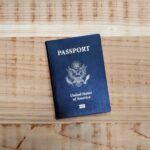New details have emerged about Apple’s nascent mobile ID program, this time pertaining to the company’s agreements with its official partner states.

Apple did not disclose the agreements publicly. They were obtained by CNBC via public records requests and other unidentified sources, and comprise seven-page agreements detailing a significant amount of control over the ID’s on Apple’s part.
Apple first announced plans to develop a mobile ID solution this past June, revealing that its aim was to let iPhone users establish digital versions of their official driver’s licenses and state IDs, and to store them in the Apple Wallet app. Toward the end of summer, Apple revealed that it had officially partnered with Connecticut, Iowa, Kentucky, Maryland, Oklahoma, Utah, Arizona, and Georgia, as well as with the Transportation Security Administration, with which it was working to ensure that the mobile IDs would be accepted at airport security screening.
It’s now becoming clear that Apple wields considerable leverage in these relationships – at least so far as the partner states go – based on some of the conditions laid out in its agreements.
Reviewing the nearly identical agreements with Arizona and Georgia, which are slated to be the first states to roll out Apple’s mobile ID, it appears that Apple has ensured that it will have sole discretion over the timelines and launches of each state’s mobile ID, as well as over which devices will be compatible. The contracts also require the states to “proactively” offer the mobile ID solution to residents, and to market it and promote it as acceptable ID to government agencies such as those in law enforcement.
The states have also agreed to bear responsibility for maintaining the mobile ID systems.
That these government agencies have ceded so much control over a citizen ID project to a private company may prove to be provocative among taxpayers as well as government accountability watchdogs. But Apple’s control may also help to ensure that the digital IDs are secure and reliable.
The company is requiring participating states to comply with International Organization for Standardization (ISO) standards pertaining to mobile driver’s licenses. Apple has also previously revealed that the mobile ID’s onboarding process will be based on biometric identity verification, with end users asked to upload images of their official, physical IDs, which will then be matched against selfie images.
These security guidelines should be reassuring to individuals using the mobile ID system and to Apple’s state government partners. But they may also close the door to states that have been developing their own mobile ID solutions that don’t necessarily meet Apple’s own strict requirements.
–
(Originally posted on Mobile ID World)








Follow Us